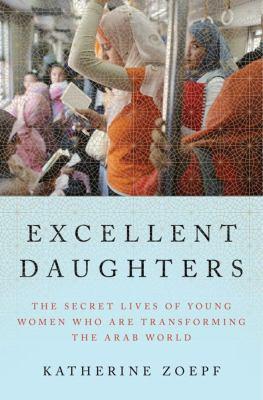
Excellent daughters : the secret lives of young women who are transforming the Arab world
The never-before-reported story of this generation of Arab women, who are questioning authority, changing societies, and leading revolutions. For more than a decade, Katherine Zoepf has lived in or traveled throughout the Arab world, reporting on the lives of women, whose role in the region has never been more in flux. Only a generation ago, female adolescence as we know it in the West scarcely existed in the Middle East. There were only children and married women. Today, young Arab women outnumber men in universities, and a few are beginning to face down religious and social tradition in order to live independently, to delay marriage, and to pursue professional goals. Hundreds of thousands of devout girls and women are attending Qur'anic schools--and using the training to argue for greater freedoms from an Islamic perspective. And, in 2011, young women helped to lead antigovernment protests in the Arab Spring. But their voices have not been heard. The world changes because of wars and terrorist attacks, but it also changes because daughters make different decisions than the ones their mothers made. This is an investigation into the changing lives of this generation of Arab daughters."
Available Copies by Location
| Location | |
|---|---|
| Victoria | Available |
Browse Related Items
- ISBN: 1594203881
- ISBN: 9781594203886
-
Physical Description
print
xii, 258 pages - Publisher New York : Penguin Press, 2016.
Content descriptions
| Immediate Source of Acquisition Note: | LSC 36.00 |
Additional Information



